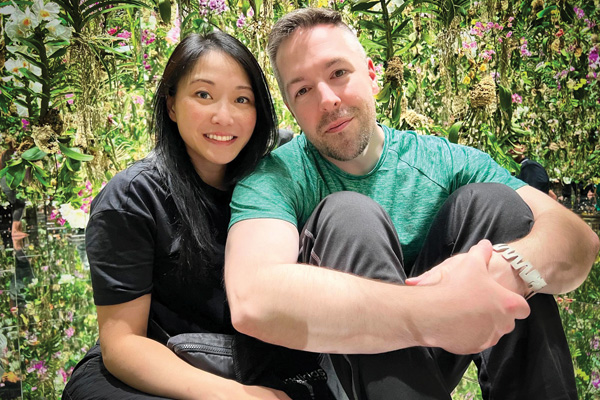In 2007, roadside bombs in Afghanistan left Tyler Coady, a 22-year-old military reservist in Canada’s mission to fight the Taliban and train Afghani forces, with serious physical injuries and Post Traumatic Stress Disorder (PTSD) symptoms. He found some relief through a national peer network called Operational Stress Injury Social Support (OSISS). Needing more help, Coady joined the board of the Prince Edward Island Military Family Resource Centre, which serves 4,500 military family members in the province. As his own healing progressed, he earned bachelor’s and master’s degrees in psychology, and reconnected with nature, donating land to the Island Nature Trust and serving on its board. Coady’s late uncle Daryl Guignion, a paratrooper in the American military, was also a professor of biology at the University of Prince Edward Island (UPEI) and an environmentalist who used nature to relieve his own PTSD symptoms. Daryl Guignion Memorial Park in Crapaud is named in his honour.
The City of Charlottetown twice presented Coady with a Veterans Recognition Award and UPEI awarded him the 2023 Inspiring Young Alumni Award. Saltscapes spoke with retired corporal Tyler Coady about denial, identity disintegration, and resilience.
You’ve studied and worked at addressing the needs of veterans. Can you explain those needs in a nutshell?
There’s three big hallmarks of military service: denial, secrecy, and stoic attitudes. That might help with operational readiness, but it absolutely destroys you when you have to reintegrate into society. Where (the military) fell short is conflating the idea of hardiness with resilience, they didn’t teach soldiers how to bounce back. They taught them how to be emotionally strong, but if you’re strong all the time, and you eventually break, you’re not taught how to rebuild yourself back up.
That lack of resilience extended to your relationship with family?
Oh yeah, I really isolated myself, alienated myself from friends and family. I was just lucky that I had a good support network that kept caring about me, even when I didn’t care about myself. I know people that have PTSD that still refuse to see it for what it is. They won’t see a doctor or a specialist, but they might be OK sitting down having a coffee at one of the coffee groups.
What do returning vets need most?
There has to be a better warm handover of medically releasing members into veteran communities. One of the research papers I did with Veterans Affairs was on identity disintegration. So much of your identity in the military shatters when you leave. It’s like you’re breaking up with everyone that was important. These are your brothers and sisters. It’s camaraderie you don’t have in the civilian world. Trying to shift them away from making it about their identity is a big component of a lot of these groups. You’re trying to cushion the landing, to build their identity outside the military.

So, veterans need to find another kind of community?
Yes, and that community here is a lifesaver.
At the same time, you find spending time away from community, on your own in nature also eases your symptoms. Why is that helpful?
It’s nice to disconnect, put your phone away, and just be present. A big part of our anxiety is worry about the future or things that have already happened, but when you’re in nature, you’re just taking it in.
Were you always an outdoorsy person?
As a kid, I was outdoors a lot, playing street hockey, baseball. My dad, my mom, my uncle Daryl all thought preserving our nature environment was important, and it rubbed off.
So, your interest in the Island Nature Trust comes both from your family and from the power of nature to heal?
My uncle was a good artist, an avid hunter, and woodsman. He preferred to be alone, and when he was struggling, he always went into nature. But first and foremost, it’s our home. We have to take care of it. Once it’s gone, it’s gone.